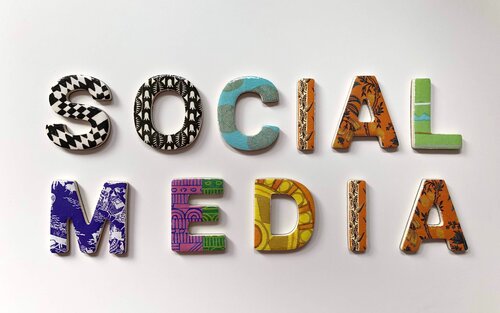How Social Media Can Affect your Mental Health
While many social media platforms can provide us with useful information and personal connections, social media use can lead to adverse effects on your mind and body. Too much time spent on social media can contribute to increased feelings of anxiety, depression, and loneliness. In this article, we will explore ways that you can modify your social media habits to take better care of your mental health.

(Merakist/unsplash.com)

The Positives and Negatives of Social Media
Social media includes all websites and apps that allow you to make and share content, or participate in social networking. There are many benefits of using social media, including the ability to connect with faraway people and educate yourself and others. However, many negative effects of social media also exist. One such result of too much social media use is that it can lead you to compare your life or appearance to other social media users, which can create feelings of inadequacy. Occasionally, other users on social media will deliberately try to harm others through unkind words or abuse, in situations known as cyberbullying. Additionally, when social media is used as a substitute for meeting up with others in-person, it can contribute to feelings of isolation and loneliness. Finally, too much social media use can worsen mental health issues such as depression and anxiety, by increasing your stress levels. It is important to recognize when any of these issues are occurring so that you can modify the way you use social media and continue to benefit from the many positive aspects of social media.
How to Modify your Social Media Habits
1. Reduce the amount of life you spend on social media
Start by tracking how much time you spend on social media on average within a day. If you notice that you typically spend more than an hour on apps or sites, it could be beneficial for you to being trying to bring this number down. One way to do this is by scheduling time away from your phone, such as in the mornings or evenings. Another easy way to is turn off the notifications for social media apps on your phone. If you think it would be helpful for you, you could also try to delete social media apps from your phone for a few days to see how the lack of social media time makes you feel.
2. Replace the screen time with social time
Spending time with people in your life who are supportive and make you feel happy is a great way to reduce stress and improve your mental health. If it is possible for you, try to schedule times to meet up with your friends when you otherwise might have used social media. If you do not feel that you have any good friends to spend time with, try joining a self-help group, or reach out to acquaintances who have the potential to become friends.
There are many activities or hobbies that can replace your screen time. Try spending your time doing activities you truly enjoy, or start a new hobby! Check out our article “How being creative can improve your mental health” for some inspiration on what to try.
“Selfies and seeing ourselves - one artist’s look in the mirror”
Christina Balch is an artist who has noticed the ways that social media was impacting her self-image. She points out how every day, we are surrounded by images of other people, which then shapes the way we see ourselves. She claims that social media profiles are actually highly curated portfolios featuring only the parts of life that people want to share. By only seeing the best parts of someone’s life, social media provides unrealistic expectations about daily life. In this talk, Balch explains how she works to celebrate her appearance by taking selfies when she considers herself to be looking her worst. To hear her whole talk, click the link below!
https://www.ted.com/talks/christina_balch_selfies_and_seeing_ourselves_one_artist_s_look_in_the_mirror#t-167837
